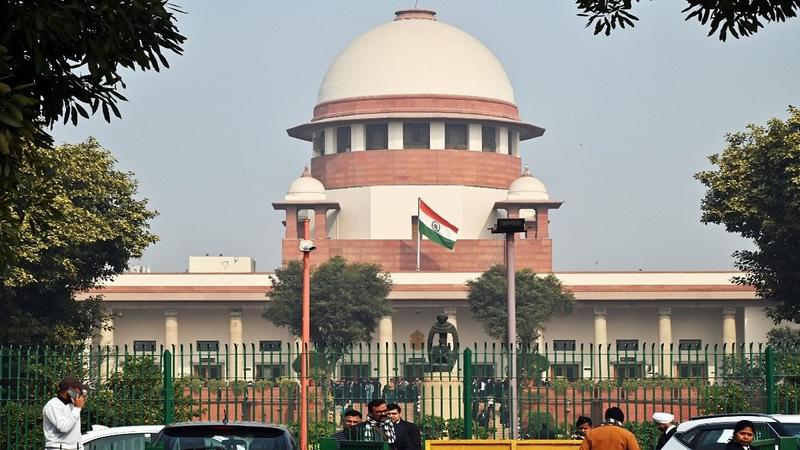Published 20:05 IST, October 5th 2024
Supreme Court Dismisses Petition Seeking Review of Electoral Bonds Verdict
The Supreme Court has dismissed a batch of pleas seeking review of its February 15 verdict, which had scrapped the Central government's electoral bonds scheme.

New Delhi: The Supreme Court has dismissed a batch of pleas seeking review of its February 15 verdict, which had scrapped the Central government's electoral bonds scheme of anonymous political funding.
A bench of Chief Justice D Y Chandrachud and Justices Sanjiv Khanna, B R Gavai, JB Pardiwala and Manoj Misra said there is no error apparent on the face of the record.
The top court also rejected the prayer for listing the review petitions in an open court.
SC Dismisses Review Petition over Electoral Bonds Verdict
"Having perused the review petitions, there is no error apparent on the face of the record. No case for review under Order XLVII Rule 1 of the Supreme Court Rules 2013. The review petitions are, therefore, dismissed," the bench said in its order dated September 25 that was uploaded today.
The review pleas filed by advocate Mathews J Nedumpara and others contended that the matter related to the scheme falls in the exclusive domain of legislative and executive policy.
"The court failed to notice that even assuming the issue is justiciable, the petitioners therein having not claimed any specific legal injury exclusive to them, their petition could not have been decided as if a private litigation for the enforcement of rights which are specific and exclusive to them," Nedumpara had submitted in his plea.
Plea Mentioned Top Court Ignored Public Opinion
He had said the court failed to notice that the public opinion could be sharply divided and the majority of the people of this country could probably be in support of the scheme, brought into existence by their elected representatives, and that they too have a right to be heard as much as the petitioners.
"The court failed to notice that, if at all it is venturing into the forbidden domain of adjudicating upon a matter of legislative policy, they have a duty to hear the public at large and that the proceedings ought to be converted into representative proceedings," the plea had said.
The Supreme Court of India, led by Chief Justice DY Chandrachud, ruled that the 2018 electoral bond scheme violated the constitutional rights to freedom of speech and expression as well as the right to information. The five-judge Constitution bench declared the scheme unconstitutional and instructed the State Bank of India ( SBI ), which was the authorized financial institution for the scheme, to provide details of electoral bonds purchased since April 12, 2019, to the Election Commission. The Commission was then directed to publish this information on its official website.
The Court criticized the electoral bonds scheme for allowing ruling parties to pressure individuals and organizations for contributions, dismissing the government's argument that it maintained contributor confidentiality similar to the secret ballot system as "erroneous." Launched on January 2, 2018, the scheme was intended as a means to enhance transparency in political funding by replacing cash donations.
On March 13, SBI reported to the Supreme Court that between April 1, 2019, and February 15 of the current year, a total of 22,217 electoral bonds were purchased, with 22,030 redeemed by political parties. In an affidavit submitted in compliance with the Court's orders, SBI confirmed that it had provided the electoral bond details to the Election Commission by the end of business on March 12.
The controversy surrounding the electoral bonds had emerged as a significant issue during the Lok Sabha elections, with the opposition labeling it an "extortion racket," while the ruling BJP defended it as a noble effort to bring transparency to political funding.
(With inputs from PTI)
Updated 20:05 IST, October 5th 2024




